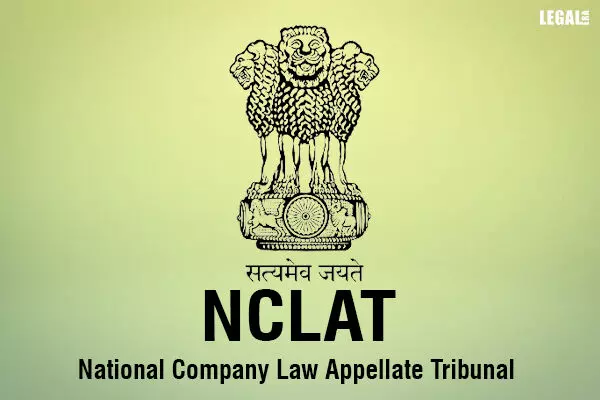- Home
- News
- Articles+
- Aerospace
- AI
- Agriculture
- Alternate Dispute Resolution
- Arbitration & Mediation
- Banking and Finance
- Bankruptcy
- Book Review
- Bribery & Corruption
- Commercial Litigation
- Competition Law
- Conference Reports
- Consumer Products
- Contract
- Corporate Governance
- Corporate Law
- Covid-19
- Cryptocurrency
- Cybersecurity
- Data Protection
- Defence
- Digital Economy
- E-commerce
- Employment Law
- Energy and Natural Resources
- Entertainment and Sports Law
- Environmental Law
- ESG
- FDI
- Food and Beverage
- Gaming
- Health Care
- IBC Diaries
- In Focus
- Inclusion & Diversity
- Insurance Law
- Intellectual Property
- International Law
- IP & Tech Era
- Know the Law
- Labour Laws
- Law & Policy and Regulation
- Litigation
- Litigation Funding
- Manufacturing
- Mergers & Acquisitions
- NFTs
- Privacy
- Private Equity
- Project Finance
- Real Estate
- Risk and Compliance
- Student Corner
- Take On Board
- Tax
- Technology Media and Telecom
- Tributes
- Viewpoint
- Zoom In
- Law Firms
- In-House
- Rankings
- E-Magazine
- Legal Era TV
- Events
- News
- Articles
- Aerospace
- AI
- Agriculture
- Alternate Dispute Resolution
- Arbitration & Mediation
- Banking and Finance
- Bankruptcy
- Book Review
- Bribery & Corruption
- Commercial Litigation
- Competition Law
- Conference Reports
- Consumer Products
- Contract
- Corporate Governance
- Corporate Law
- Covid-19
- Cryptocurrency
- Cybersecurity
- Data Protection
- Defence
- Digital Economy
- E-commerce
- Employment Law
- Energy and Natural Resources
- Entertainment and Sports Law
- Environmental Law
- ESG
- FDI
- Food and Beverage
- Gaming
- Health Care
- IBC Diaries
- In Focus
- Inclusion & Diversity
- Insurance Law
- Intellectual Property
- International Law
- IP & Tech Era
- Know the Law
- Labour Laws
- Law & Policy and Regulation
- Litigation
- Litigation Funding
- Manufacturing
- Mergers & Acquisitions
- NFTs
- Privacy
- Private Equity
- Project Finance
- Real Estate
- Risk and Compliance
- Student Corner
- Take On Board
- Tax
- Technology Media and Telecom
- Tributes
- Viewpoint
- Zoom In
- Law Firms
- In-House
- Rankings
- E-Magazine
- Legal Era TV
- Events
NCLAT Declares GST Dispute Not A Bar To Section 9 IBC Proceedings

NCLAT Declares GST Dispute Not A Bar To Section 9 IBC Proceedings
The NCLAT Bench, comprising Justice Rakesh Kumar Jain (Member Judicial) and Arun Baroka (Member Technical), has ruled that a dispute concerning GST dues does not qualify as a “pre-existing dispute” that would hinder the initiation of the Corporate Insolvency Resolution Process (CIRP) under Section 9 of the Insolvency & Bankruptcy Code, 2016 (IBC).
The case involved M/s Ahuja Cotspin Private Limited, a company incorporated under the Companies Act, 1956, engaged in manufacturing cotton yarn, and Aggarwal Enterprises, an operational creditor. Aggarwal Enterprises had issued multiple invoices between August 13, 2018, and September 16, 2018, for goods supplied to the Corporate Debtor. In December 2018, the Corporate Debtor became aware of a scam involving fake bills related to cotton supply, leading to a halt in transactions and a demand for original GST documents to verify the authenticity of the transactions. The Directorate General of GST Intelligence (DGGI) then conducted searches and seized records from the Corporate Debtor's premises, alleging improper GST payments. On May 27, 2019, Aggarwal Enterprises issued a demand notice seeking Rs. 1,91,51,792, including interest, which the Corporate Debtor contested due to disputed invoices and ongoing GST investigations.
Following this, Aggarwal Enterprises filed an application under Section 9 of the IBC, seeking the initiation of CIRP against the Corporate Debtor, which the National Company Law Tribunal (NCLT) admitted on June 12, 2024. The Corporate Debtor challenged the NCLT's decision, arguing that the GST dispute and the validity of GST payments, still under investigation by GST authorities and pending adjudication before the Punjab and Haryana High Court, constituted a pre-existing dispute.
The NCLAT found that the GST-related dispute did not constitute a pre-existing dispute between Aggarwal Enterprises and the Corporate Debtor but rather a matter between the Corporate Debtor and the Directorate General of GST Intelligence. The Tribunal noted that the Corporate Debtor had failed to demonstrate a genuine pre-existing dispute over the invoices before the issuance of the demand notice on May 27, 2019.
Referring to the Supreme Court's decision in Mobilox Innovations Pvt. Ltd. v. Kirusa Software Pvt. Ltd., which established a three-fold test for admitting an application under Section 9, the NCLAT confirmed that the conditions were met: the operational debt exceeded Rs. 1 lakh, the debt was due and payable, and there was no pre-existing dispute between the parties or pending legal proceedings before the demand notice was received.
The NCLAT determined that the Operational Creditor's claim was valid and unpaid. The Corporate Debtor's arguments regarding its financial stability and the relevance of ongoing GST investigations were deemed irrelevant to the CIRP initiation. As such, the NCLAT upheld the NCLT's decision and dismissed the appeal, affirming that the debt and default were clear, and there was no valid pre-existing dispute to prevent the CIRP.



